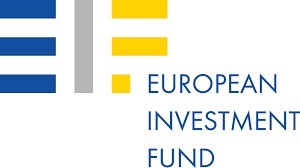The European venture capital landscape has come a long way since the establishment of the European Investment Fund (EIF) on 14 June 1994, and the EIF has played a significant role in the progress that has been made in the sector. Established with the primary aim of driving innovation and growth among small and medium sized businesses in the EU, the EIF has become invaluable for many venture and smaller buyout funds; a number of which may not have been raised without the EIF's cornerstone investment and subsequent support. In a June research paper, EIF claimed credit for catalysing a whopping 41% of European VC investment activity in 2014, having themselves been directly responsible for 10%.
So what exactly is the EIF, and why has it been so successful?
The fund itself, a stand-alone entity, is majority owned by the European Investment Bank (EIB), which is in turn controlled by the governments of the (currently) 28 European Union countries. The EU (represented by the Commission) and other financial institutions make up the balance of ownership in EIF. Articles 2 and 23 of the EIF statutes set out the scope of EIF's investment mandate: 'to contribute to the pursuit of the objectives of the European Union' and to 'conduct its activities in the territory of the Member States of the Union'. Its main source of external funding is the EU budget, which has been remarkably stable over the years, and it has developed considerable in-house investment expertise.
Not surprisingly, this ownership structure, mandate and funding source has come under increasingly intense scrutiny in the UK since the morning of June 24, when Europe awoke to the news that the UK had voted to leave the European Union.
Of course, at the moment it is not clear how "hard" Brexit will be. It is unclear what deal might eventually be done as regards access to (or even membership of) the single market, and whether the UK will continue to contribute to the EU budget. Whether UK-based funds can continue to access EIF money will, no doubt, depend in part upon the shape of the eventual deal.
This matters a lot because the EIF has been the single largest investor in UK venture capital firms in recent years. In 2015, for example, the EIF contributed €655 million in equity in the UK alone. This equity participation brings with it the hugely important benefit of mobilising capital from private investors into the UK, which EIF expects to reach €2.87billion – over €4 for each €1 of EIF investment. The EIF's own factsheet on investment in the UK makes for impressive reading.
The key to the UK's future relationship with EIF is mainly a question of politics of course, but is linked to the UK's ability to retain a stake in the EIF either directly or through its majority owner, the EIB. That stake could, as now, continue to be held by the UK government or, if that is politically infeasible, a quasi-governmental organisation could take a place alongside the other financial institutions that make up 12% of EIF's ownership. The British Business Bank (BBB) could be a possible candidate for holding the EIF investment.
If that route turns out not to be viable, as many are starting to believe, the UK government must find a way to replace the lost funding – and, ideally, to do so in a way which replicates the stability and expertise of the EIF, and is not subject to regular, politically-driven changes (of structure or funding). Again, the BBB would be the natural delivery mechanism for UK funded investment, because it currently has a similar (but more limited) investment mandate to EIF. That would be a big change for that (relatively new) organisation, and it would require a substantial ramp-up, which would no doubt take time.
Meanwhile, this week's important announcement by the European Commission is that €400 million will be used to seed a new EU fund of funds for investment in venture capital. While this adds pressure to ensure that the UK's vital VC sector does not suffer a significant setback in a post-Brexit world, it may also provide an interesting model for UK-specific intervention which focuses on increasing the participation of private capital.
A recent report by an influential UK Parliamentary Committee has already acknowledged the important role EIF has played, and continues to play, in underpinning finances for businesses in the UK, and calls for a clear statement on Government plans to ensure that the current level of funding will not be reduced. As they suggest, it is important that the British government reassures the sector that, one way or another, access to this vital funding source will be preserved, given the benefits to UK start-up and innovative businesses that would otherwise be lost.













